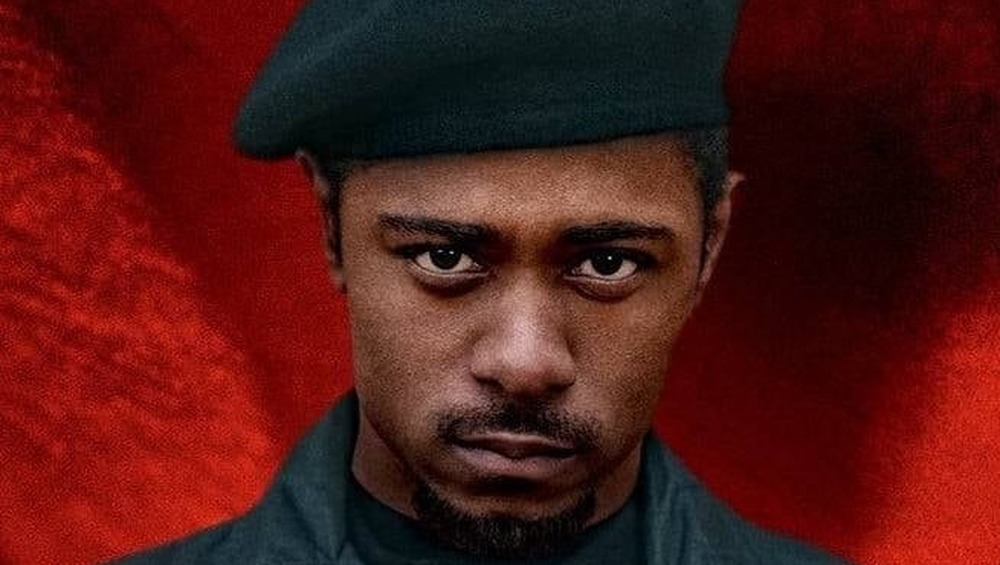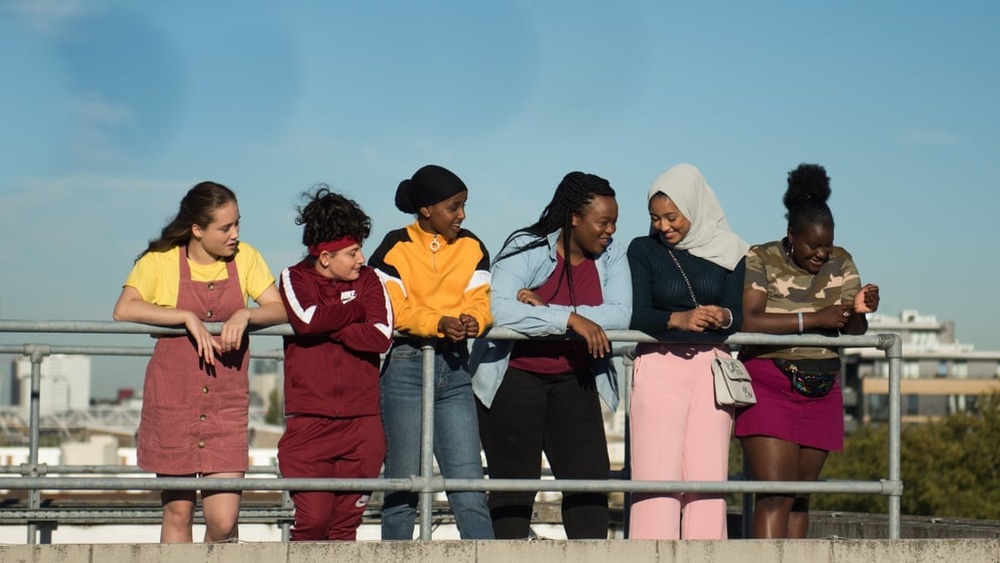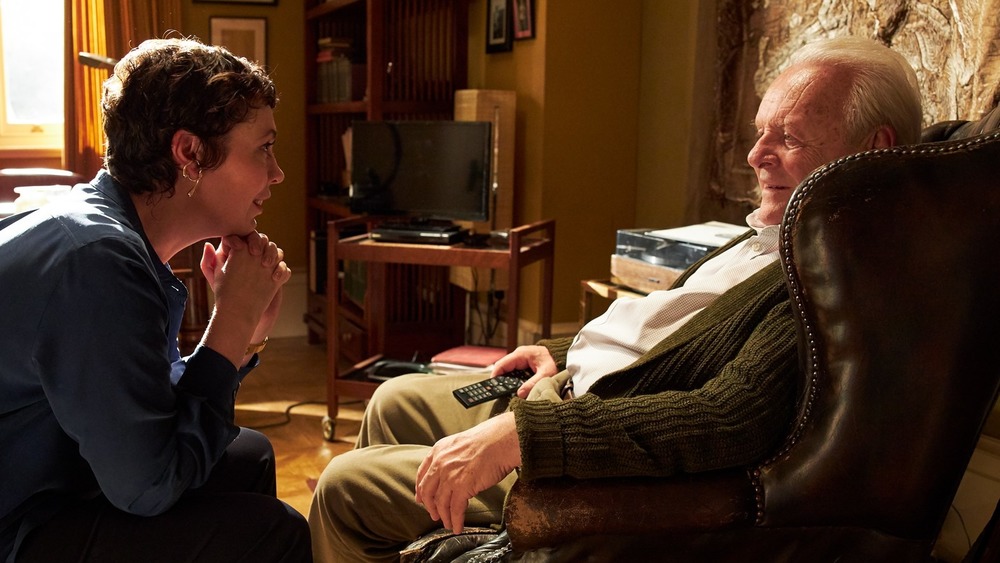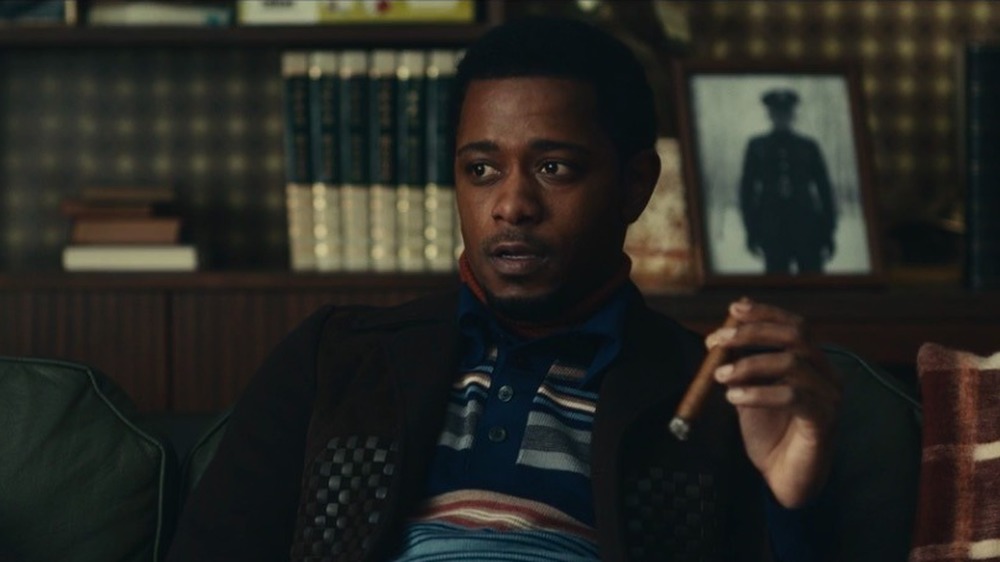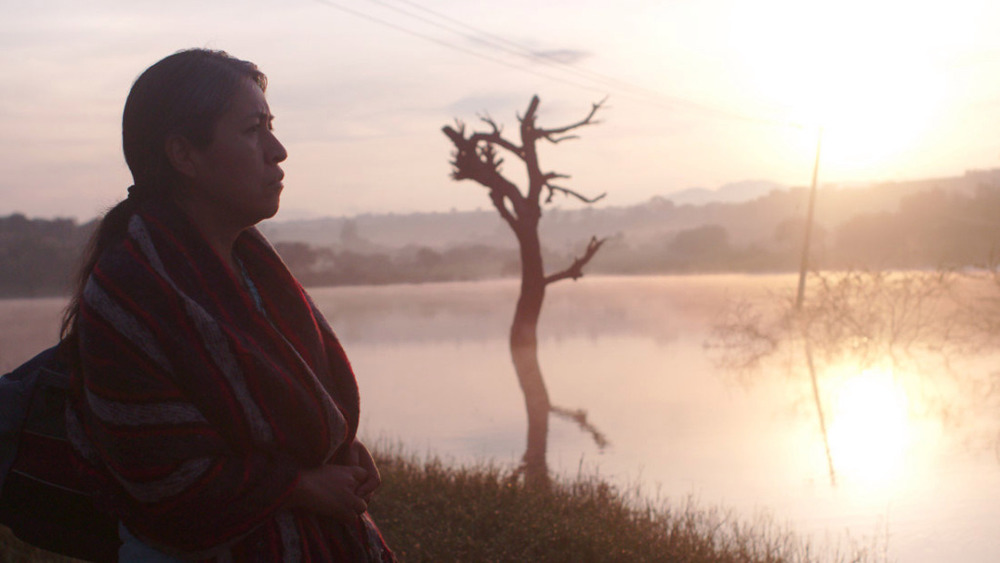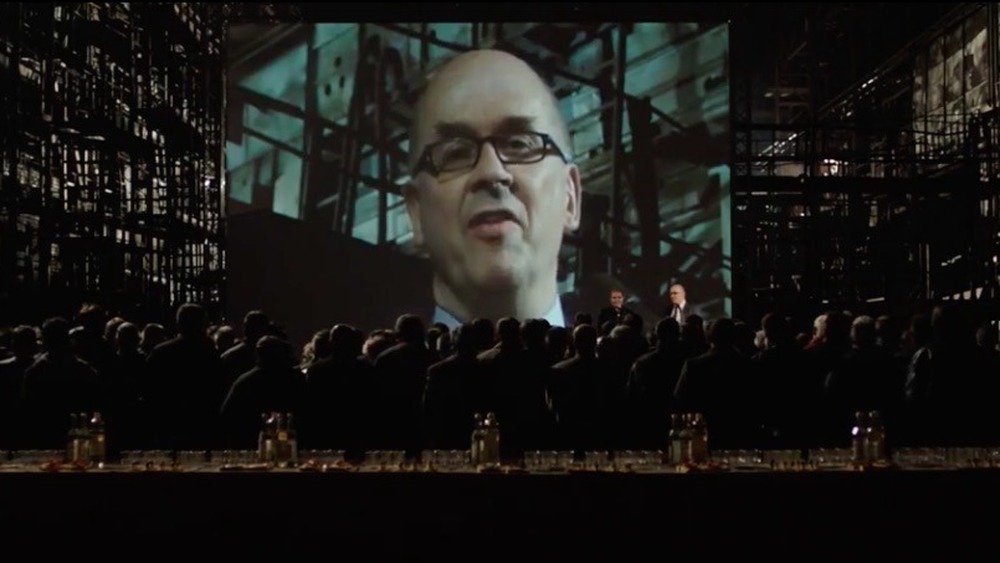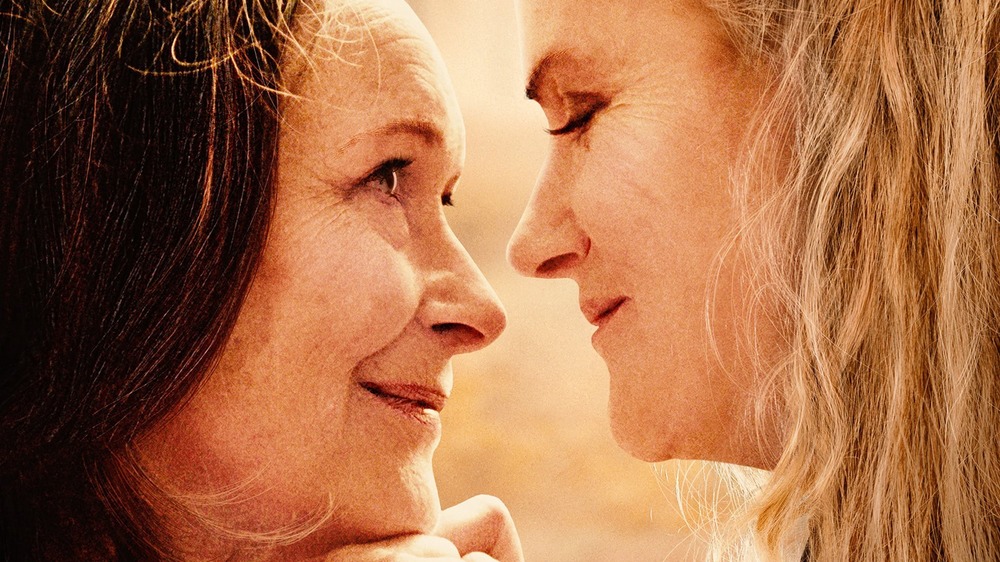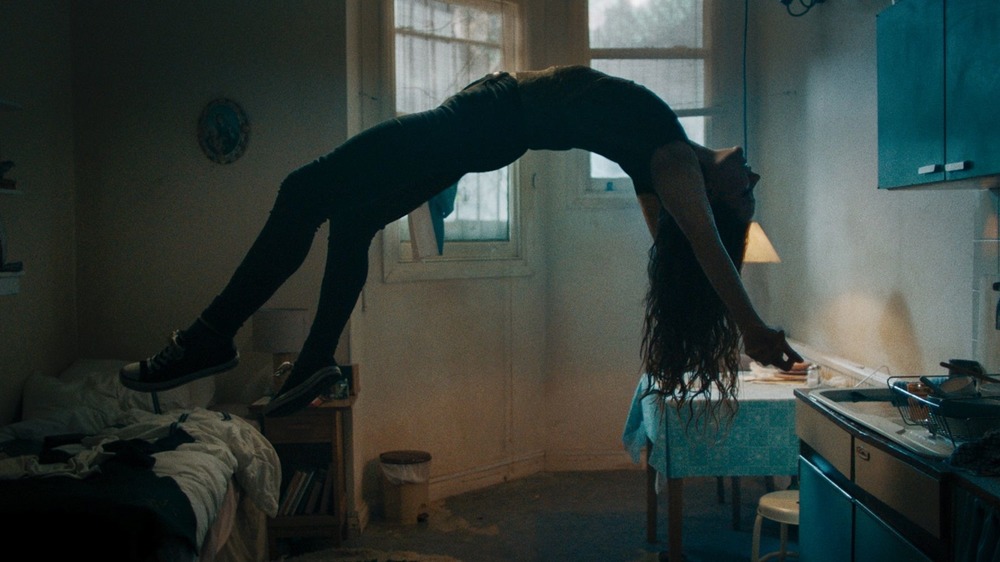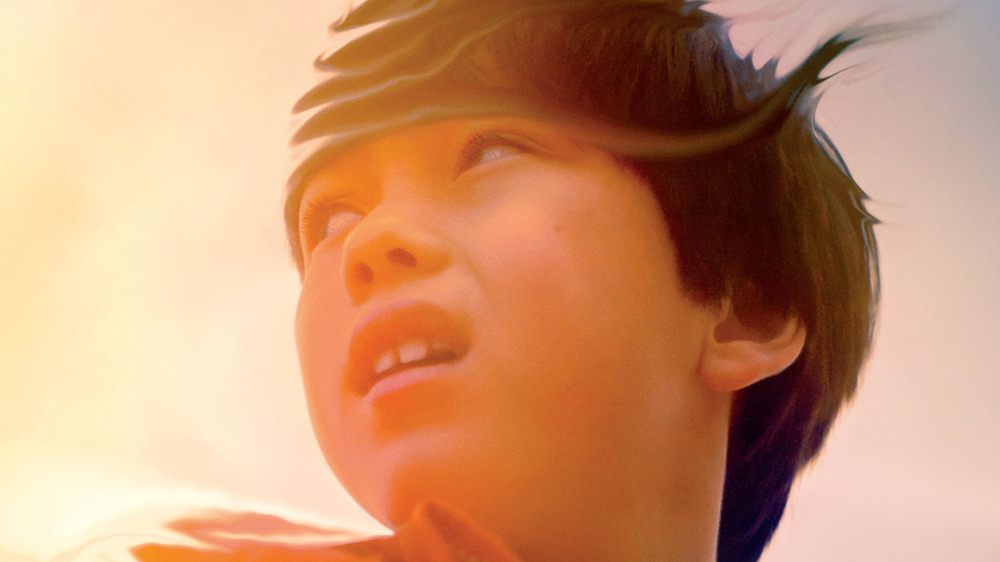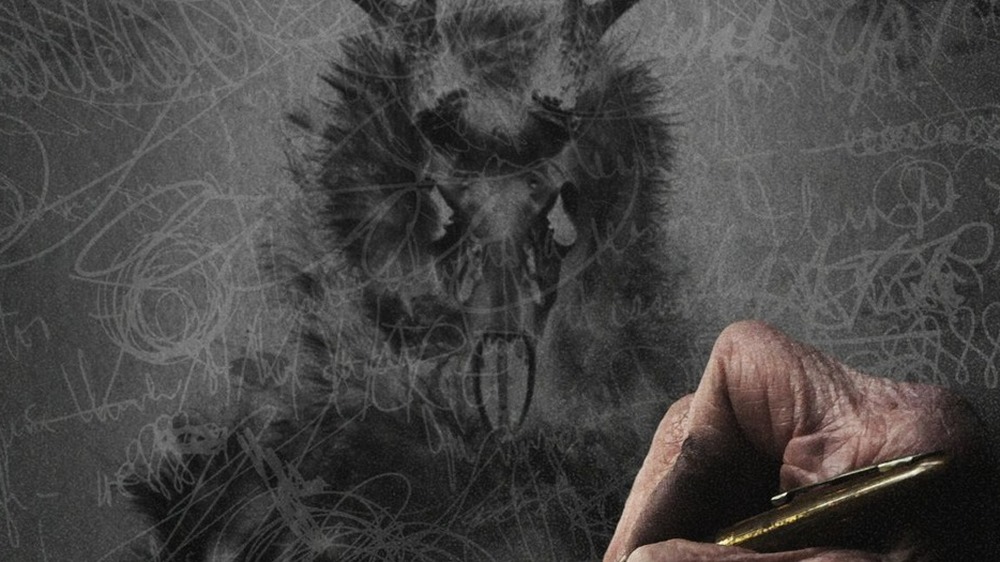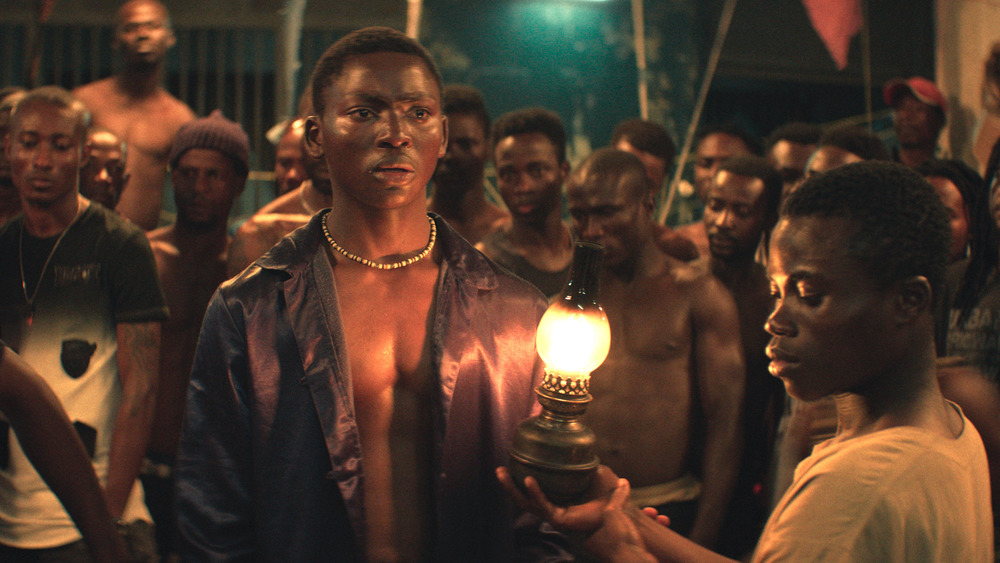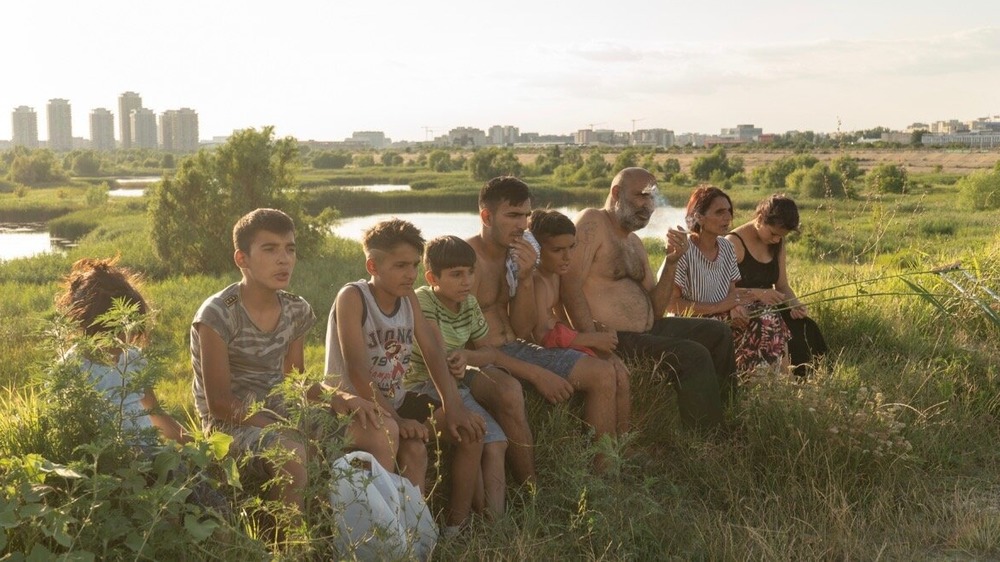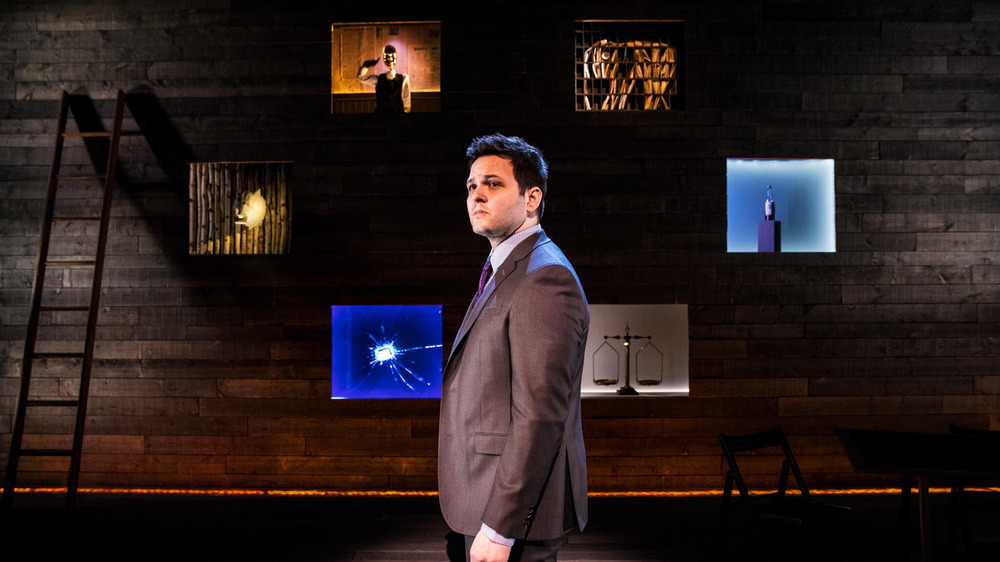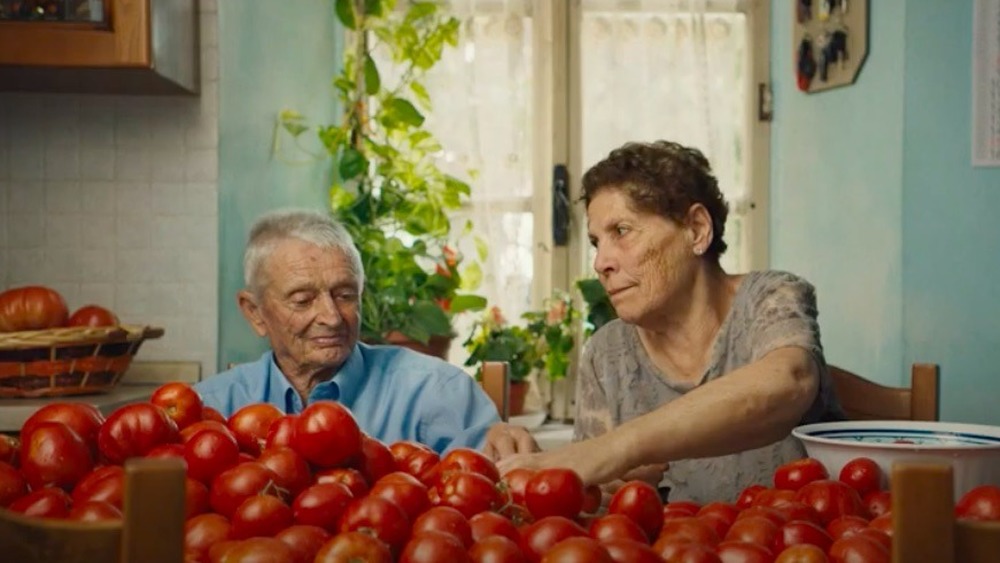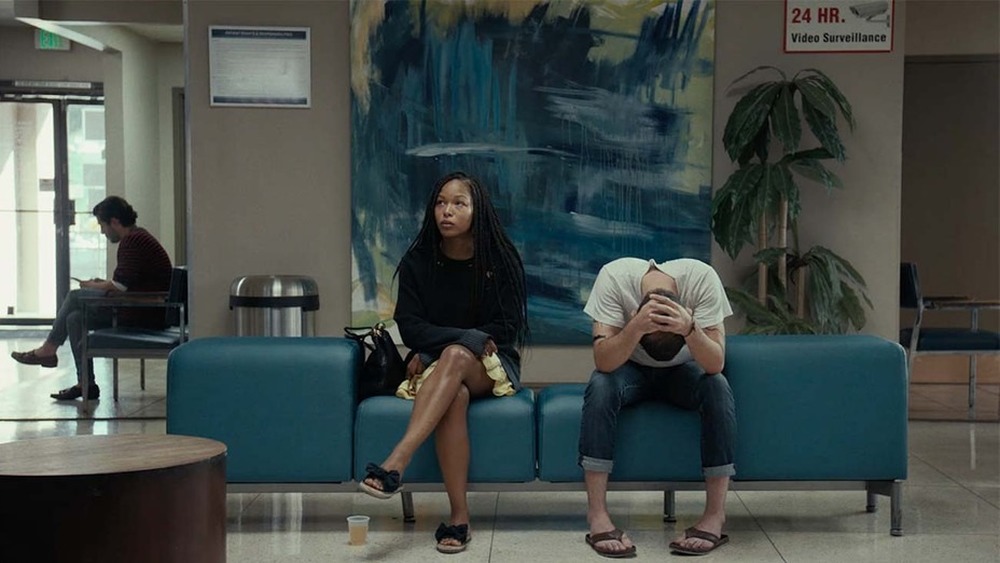The Best Rated Movies On Metacritic In 2021
We aren't that far along into 2021, although the raging global pandemic has made it seem much longer to many of us still stuck at home. Luckily, there have been plenty of good movies released so far to help distract us from the reality of the outside world.
The review aggregation site Metacritic, which produces a calculated average score — the Metascore — based on various reviews to present a critical consensus for a show or film, keeps a list of best movies by year. The list for the best of 2021 is already very long and full of suggestions for a viewer looking for something critics have deemed worth a watch.
A few of these films are even being talked about as potential Oscar contenders ahead of the April date for the delayed awards show, including Judas and the Black Messiah and Night of the Kings. With all that in mind, here's a breakdown of 2021's best rated movies on Metacritic.
Rocks
Rocks, directed by Sarah Gavron, follows a Black British teenager living in London named Olushola Omotoso (Bukky Bakray), nicknamed "Rocks," whose mother abandons her and her younger brother. Wanting to avoid the authorities, they must fend for themselves.
The film is being praised for its sincere storytelling, as well as deft and compassionate directing of a difficult story; some outlets have called it Gavron's best film. Sight and Sound, in its review, emphasized the compassion that emanates from the film, adding that it's a "finely observed portrait of a young woman's gradual breaking down, as the usual buffers, including brotherly love and friendships, strain under her crushing responsibility."
The young woman being referred to is of course the title character played by Bukray; she and her co-stars have also earned ample praise. NOW Toronto, in its five-star review, wrote, "The cast led by Bukky Bakray and Kosar Ali are unbelievably charming and infectious. In a just world, these rockstars would become household names."
The Father
Directed by Florian Heller (co-adapting his own play with Christopher Hampton), The Father follows Anthony (Anthony Hopkins), an 80-year-old whose dementia is causing his mental state to become increasingly unstable. His daughter Anne (Olivia Colman) struggles to get him the care he needs — he repeatedly rejects the caregivers she introduces him to — while coming to terms with her aging father.
The film has earned widespread praise from all angles: directing, acting, writing, and so on. Of Heller's and Hampton's writing, the Wall Street Journal wrote, "What might have been predictable or sentimental in other hands becomes startling in the film's approach, as well as beguiling, unsparing, terribly moving and occasionally very funny."
Further, Hopkins and Colman — both already Oscar winners — are reeling in acclaim for their performances, both as solo actors and together. Vulture wrote that Colman's performance "extends endless patience," while Hopkins "leans into the character's capacity for cruelty as well as his vulnerability." On the subject of Hopkins portraying the well-written depiction of dementia, the piece continues, "Anthony may not have been an especially warm figure in his prime, but Hopkins makes it painfully clear that dementia is stripping him of any dignity."
Judas and the Black Messiah
Judas and the Black Messiah, directed by Shaka King (who also co-wrote the screenplay with Will Berson), is amassing acclaim for its portrayal of key members of the Black Panther Party in late 1960s Chicago. William O'Neal (Lakeith Stanfield), arrested for posing as a federal officer while attempting to hijack a car, is offered a plea deal by the FBI to gather information about the Black Panther Party, especially the Illinois chapter's charismatic and passionate leader, Fred Hampton (Daniel Kaluuya).
The New York Times calls it "the rare Hollywood film to explore a vision of Blackness that has nothing to do with white audiences." The piece claims that fact is what truly makes it as powerful as it is (although it also lauded both Kaluuya and Stanfield for stunning performances, as well as a "insightful direction" by King).
The Atlantic, meanwhile, calls it "masterful storytelling" which sheds light onto a often misrepresented piece of history. The Austin Chronicle adds to this point, writing, "The film isn't worried about convincing you of the Black Panther Party's ideology. Assured of the righteousness of its own politics, the film forces you to catch up to the Panthers, illuminating on screen how they cultivated 'a culture that will free you' and the governmental manipulation necessary to suppress that culture." All of this goes along with what almost every publication has pointed out, which is that this 50-plus-year-old story is still very much relevant today.
Identifying Features
Identifying Features, a Spanish-language film by director Fernanda Valadez, focuses on Magdalena (Mercedes Hernandez), who loses contact with her son after he takes off from their town of Guanajuato in Mexico for the United States with a friend in hopes of finding work. Desperate to find out if he's still alive, Magdalena embarks on a journey which only becomes more dangerous along the way. Meanwhile, a young man named Miguel (David Illescas) has just returned to Mexico after being deported from the U.S.; his path becomes intertwined with Magdalena's.
Valadez has earned plentiful praise for her direction, one that critics say seamlessly melds a personal story with a bigger and broader implication in addition to successful genre blending. The AV Club declared, "Valadez finds a personal tragedy within a national one... She's made a humanitarian lament by way of a slow-burn thriller."
The review for RogerEbert.com addresses the ways in which the film reveals the flaws in the so-called American Dream, writing, "Identifying Features peels back that feel-good façade of the 'coming to America' narrative for a much more painful reality, one that feels freshly steeped in tears, heartache, and headlines."
Atlantis
Writer-director Valentyn Vasyanovych's Atlantis takes viewers to the near future of 2025, in which Eastern Ukraine has become essentially uninhabitable; water has to be imported in by truck, and a wall is being put up at the border. Sergiy (Andriy Rymaruk) and Katya (Liudmyla Bileka), two strangers who meet by chance, are having trouble adjusting to the new reality. Together, they decide to attempt to return to some sort of normalcy in any way that they can.
Many critics have brought up Vasyanovych's slow-paced approach for this film — it's one that may divide viewers based on taste, but here only serves the film's intentions. On this topic, The Lens wrote, "For viewers willing to submit themselves to its somber, unhurried style, Vasyanovych's feature reveals a cruel, formidable vision."
Deadline Hollywood Daily further notes the impact of a slow film, connecting it to the overall message of Atlantis: "Vasyanovych's tone is distinct; not to mention timely. The crisis he depicts can be as dull as it is dramatic, making Atlantis an eerily topical watch."
Two of Us
In Filippo Meneghetti's French-language drama Two of Us, viewers are introduced to Madeleine (Martine Chevallier) and Nina (Barbara Sukowa), two retired women who have secretly been in love for decades. Everyone in their lives, including their closest family members, believes that they're just neighbors, but when some unexpected events lead to Madeleine's daughter uncovering the truth about them, their relationship is turned upside down.
The direction and the lead actors are at the core of the critical reaction, while the combination of a debut director with two seasoned lead actors makes for a dynamic and compelling experience. As the AV Club writes, "It's an impressively confident debut, one that Sukowa and Chevallier bring to life with the verve of two actors in their prime."
Critics have also given Meneghetti his due as a writer as well as a director. TIME Magazine deemed it "attuned to the sensuality of older women," which is something not often seen onscreen. TIME also categorizes it as a film that "morphs from romance to woman-gone-mad psychothriller territory," adding intricate complexity to those two women and their emotional depths. All in all, the complexity of both character and plot make Two of Us one of Metacritic's top-rated films of 2021.
Saint Maud
Debuting feature filmmaker Rose Glass also wrote the screenplay for Saint Maud, which explores faith and madness through a horror lens. Maud (Morfydd Clark) is a hospice nurse, newly devout, who develops an obsession with saving the soul of every dying patient before they go. But sinister occurrences, in addition to Maud's own sinful past, get in the way of her efforts.
First and foremost, Saint Maud's horror elements have been singled out for their chilling effectiveness. Time Out urged moviegoers to check this film out, writing, "I've seen Saint Maud twice and each time it found new ways to freak me out. Take the leap of faith." In agreement, Culturess describes the film as "hysteria-inspiring [and] pulse-pounding," while Rolling Stone promises it to be "a holy revelation, and the sort of holy terror that restores your faith in a genre."
Aside from succeeding as a first-rate horror film, Saint Maud also serves as an impressive calling card for its writer-director. The Winnipeg Free Press describes Glass as "one of those filmmakers who arrives on the scene fully formed, with a deep, dark, intimate style, and a fearlessness about playing with genre."
The Reason I Jump
Jerry Rothwell directed this illuminating documentary, which follows five young people living with autism spectrum disorder across four continents. It's based on the book The Reason I Jump: The Inner Voice of a Thirteen-Year-Old Boy with Autism by Japanese author Naoki Higashida, a nonverbal autistic person who also adapted it for the screen.
Much of the praise surrounding the film points to the careful, thoughtful approach taken when telling the very personal stories of these individuals' inner lives, especially considering the stigma often associated with autism. IndieWire praised the movie's overall positive message, writing, "By opting for a measured and more humble approach, The Reason I Jump solidifies as less of an instructive solution than an empathetic work of encouragement."
The film is also being lauded for connecting the viewer to its subjects with its empathetic approach. For fans of the book, Variety insists that the film does it justice: "Naoki Higashida's groundbreaking first-person account of living with autism becomes an inventive, sensuous documentary worthy of its source."
Sator
With Sator, writer-director Jordan Graham tells the story of a family that's secluded in a deserted forest filled with decaying remnants of the past. When a mysterious death occurs, the family starts drifting further apart, looking for answers; they discover that an evil force named Sator has been watching the family and influencing their decisions in an effort to eventually overcome them.
The horror element has been more than well received, cementing it as one of the best genre films of the year. As the Guardian wrote, "Graham uses darkness and a very sparse score/soundscape to create a truly disturbing work that relies not so much on gore as the uncanny in its most potent form: stillness, pools of darkness and just-visible figures."
The praise for Graham and his deft grasp on the genre has been widespread. Variety enthused, "Anyone can pull off a jump scare or three. Graham immediately manages the considerably more difficult task of conjuring a mood of general dread, suffusing ordinary settings with supernatural unease." After all, the difference between jump-scare horror and truly-uneasy-feeling horror is what often defines a lasting and memorable addition to the genre — and Sator has easily claimed its spot on Metacritic's list of the best-reviewed movies of the year.
Night of the Kings
In this French-language film by writer-director Philippe Lacôte, a young man (Barry Koné), after being caught for pickpocketing, is sent to a prison called "La Maca" in the middle of the Ivorian forest. As it turns out, this prison is ruled by its inmates rather than a staff of guards. By tradition, the Boss designates the young man the new "Roman," one who must act as a storyteller and narrate a tale to the rest of the inmates. Scared by what fate could await him, he decides to make his story — that of the legendary outlaw "Zama King" last until dawn.
RogerEbert.com calls the film "an assured, energetic piece of epic filmmaking, one that celebrates how storytelling, oration, and folklore teach us about our past so we might change our present." Lacôte's inclusion of oral storytelling traditions within the visual world of film has been one of many sources of admiration for critics.
Further, Lacôte's grasp on this interweaving of storytelling methods only adds more nuanced to an already intricate idea. The Chicago Reader says Lacôte "balances despair and levity, humanizing the forgotten through a potent blend of African fables, improvisation, and hope-however fleeting."
Acasă, My Home
A Romanian documentary by director Radu Ciorniciuc, Acasă, My Home introduces viewers to the Enache family who, for the last two decades, have been living harmoniously within nature — sleeping in a hut, catching their own fish — near an abandoned water reservoir in the Bucharest Delta wilderness. But when the area is made into a public national park, the Enaches have no choice but to say goodbye to life as they know it and move to the city. Unsurprisingly, once there, they struggle to adapt to urban life.
FilmWeek calls it "a remarkable piece of documentary access," one that illuminates the complexities of these individuals with this intimate portrait. As with the best documentaries, this is, according to the Los Angeles Times, "immersive, lively, warm and heartbreaking."
Vulture argues that the true satisfaction at the heart of the film comes in a surprising way: "The secret of this beautiful, bittersweet film about a group of people like no other is that, in the end, it's all so shockingly relatable."
Derek DelGaudio's In & Of Itself
In director Frank Oz's documentary Derek DelGaudio's In & Of Itself, a man attempts to help his audience answer the seemingly simple question, "Who am I?" DelGaudio, a storyteller and conceptual magician, created this story initially as a theater show — also directed by Oz — to explore the mysteries of human identity.
Mashable addressed the complexity of the show, stating, "In & Of Itself might be a brave act of kindness, it might be a cynical show of trickery, it might be both at once or something else altogether. Whatever else it is, it's completely fascinating."
The use of magic has been another cause for celebration among critics. DelGaudio uses it as a surface level visual experience — and also to tie into the deeper themes of the show as a whole. As Rolling Stone put it, "There's a magic here that has nothing to do with rabbits pulled from hats. It's a testament to the power of the material and the determination of its interpreters to not dilute it."
The Truffle Hunters
2021 looks like another strong year for documentaries — and The Truffle Hunters, by Italian directors Michael Dweck and Gregory Kershaw, is an early addition to the list. This film takes viewers to the forests of Piedmont, Italy, where a handful of men between the ages of 70 and 80 search for the rare and expensive Alba truffle. These men are guided by secrets that have been passed down through multiple generations (and the help of their loyal dogs).
The premise is fairly simple — something that adds to the strength of the film. As Vox writes, "It's a sweet and simple movie with a healthy dose of bittersweet wistfulness for a fading world, and it's beautiful." Yet despite its simplicity, the documentary, like all good stories, possesses layers of complexity which lend themselves to its overall success. Polygon addresses this, writing, "There's a dark side to the profession, which the filmmakers acknowledge, but the most valuable thing they capture in their film is the joy of being alive, and finding something you love."
Whether you think a documentary about truffle hunting sounds fascinating or you're skeptical of the obscure subject, the overwhelmingly positive consensus can't be ignored.
Test Pattern
Written and directed by Shatara Michelle Ford, Test Pattern follows the relationship between a Black woman named Renesha (Brittany S. Hall) and her white boyfriend Evan (Will Brill). They've already faced hurdles such as questions and judgements, but when Renesha is sexually assaulted and Evan must drive her all over the city in search of a rape kit, they face their biggest test in a narrative that makes pointed observations of how modern America treats young women — especially young women of color.
The film has earned widespread praise for its thoughtful look at the systemic injustices tied to race and gender. FilmWeek calls it a "more than timely, [but] urgent" watch, while the Playlist insists that "with patient specificity, [the film] probes the institutional injustices suffered by black women to potent, provoking effect."
Overall, despite its brief length, Test Pattern will linger in viewers' minds for a long time.
